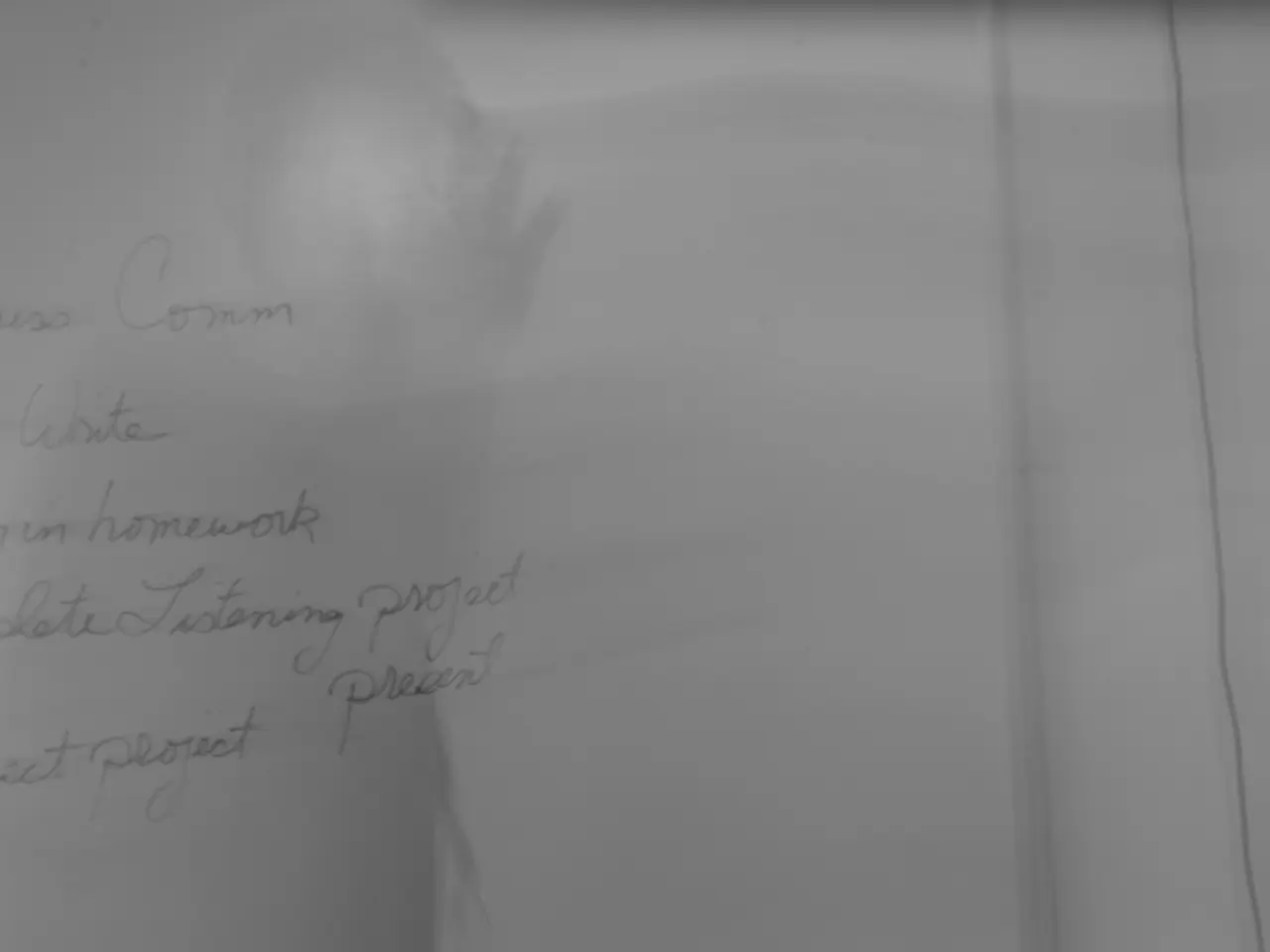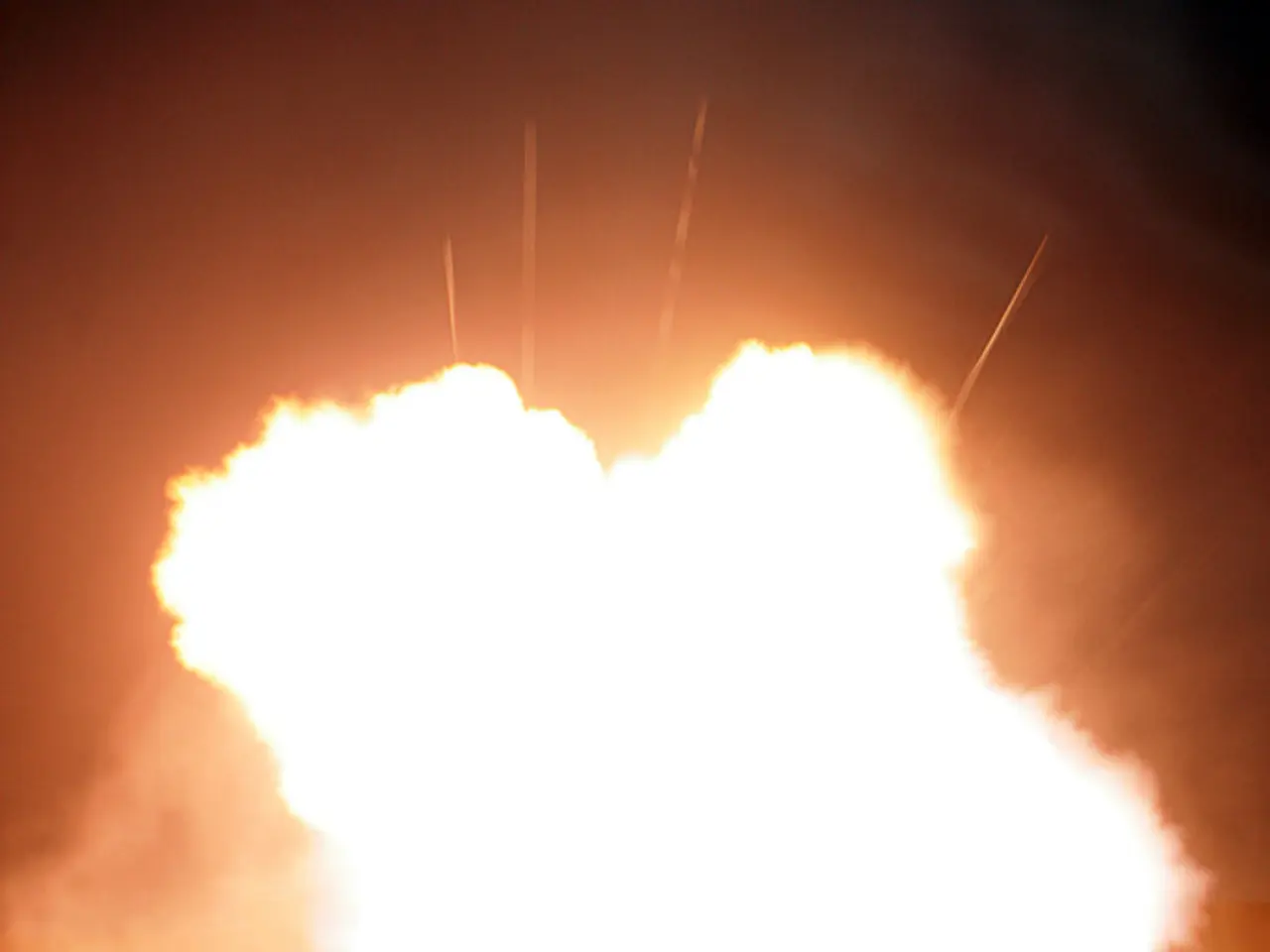Conservative German politicians advocate for Israel's protection
In a surprising turn of events, Germany, a long-standing ally of Israel, has suspended arms exports to Israel that could be used in Gaza "until further notice." This decision, announced by Chancellor Friedrich Merz, comes in response to Israel's intensified military actions and its plan to take control of Gaza City to dismantle Hamas and secure the release of hostages [1][2][3].
Germany supports Israel's right to defend itself and emphasizes the importance of freeing hostages. However, it finds the current military approach increasingly difficult to justify and insists on the need for negotiations towards a ceasefire. The country also calls for unrestricted humanitarian aid access to Gaza for UN agencies and NGOs amid the conflict [1][2][3].
Vice Chancellor and leader of the Social Democratic Party (SPD), Lars Klingbeil, supports the government’s decision to halt arms exports, highlighting a consensus within the coalition government against further military escalation in Gaza. This move represents a departure from Germany's usual firm backing of Israel, prompted by concerns over civilian suffering and hostages' safety [1].
Foreign policy experts, such as Norbert Röttgen from the CDU, have suggested that if Israel's policy does not change quickly, Germany may be forced to vote for concrete measures, such as the suspension of certain EU-Israel agreements and projects [1]. The SPD is also increasing pressure on Federal Chancellor Friedrich Merz to take a tougher stance against Israel [1].
The Security Cabinet has discussed how Germany could proceed together with European partners in the future regarding action against Israel [1]. However, the federal government is rather on the brakes in the European context regarding action against the Jewish state [1]. Chancellor's Minister Thorsten Frei stated that over 50 to 90 percent of aid deliveries are captured by terrorists, including Hamas [1].
Meanwhile, Hamas and Islamic Jihad have published videos showing hostages Evyatar David and Rom Braslavski, with Braslavski being a German citizen. David appears in a video in a severely emaciated state, digging with a shovel in a Hamas tunnel and saying that this is his own grave [1]. The SPD's mood has become increasingly critical of Israel, with MP Nina Scheer claiming at the end of July that a "genocide" is taking place in Gaza [1].
Armin Laschet, another foreign policy expert, criticized top state officials for not naming the German hostages daily and demanding their immediate release [1]. Roderich Kiesewetter, another foreign policy expert, stated to Tagesspiegel that the goal of Hamas is the destruction of Israel and the kidnapping of Israeli hostages [1]. Kiesewetter also criticized Germany for dropping aid packages over Gaza, which he claims directly support Hamas [1].
The SPD foreign policy expert Adis Ahmetovic called for "more decisive action" from the Federal Government in a ZDF interview on Sunday, regarding the situation in Israel and Palestine [1]. Foreign Minister Johann Wadephul visited Israel and the West Bank again last week, and Chancellor Merz said he wants to hear a report from Wadephul and then "make all further decisions" [1].
[1] Source: Der Spiegel, Tagesspiegel, ZDF, and EU Commission press releases.
- The suspension of German arms exports to Israel, announced by Chancellor Friedrich Merz, is a response to Israel's intensified military actions and plans to take control of Gaza City, as well as concerns over civilian suffering and hostages' safety.
- Foreign policy experts, such as Norbert Röttgen from the CDU and Adis Ahmetovic from the SPD, have suggested that Germany may take further concrete measures, like suspending certain EU-Israel agreements and projects, if Israel continues its current policy and fails to negotiate a ceasefire.






